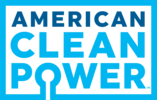News Release from American Clean Power Association (ACP)
Wind Industry Profile of
NEW REPORT: Urgent, Collaborative Offshore Wind Transmission Planning Needed to Achieve Federal and State Clean Energy Goals
With dozens of offshore wind projects in the pipeline off U.S. shores, federal agencies, states, and grid operators must immediately begin collaborative planning to identify cost-effective transmission solutions to bring that power online, according to a Brattle Group report commissioned by American Clean Power Association (ACP) released today. The report titled The Benefit and Urgency of Planned Offshore Transmission finds that starting this collaborative planning process now will significantly reduce costs, reduce environmental and community impacts, increase grid reliability, and make it possible to achieve climate and clean energy goals in a timely fashion.
Leveraging existing studies in the United States and Europe, the study estimates that the benefits of proactive transmission planning for over 100 gigawatts (GW) of likely U.S. offshore wind generation developments over the next 2-3 decades include:
- At least $20 billion in transmission-related cost savings;
- 60-70% fewer shore crossings and necessary onshore transmissions upgrades;
- Approximately 2,000 (50%) fewer miles of marine transmission cable installations disturbing the seabed;
- More competitive procurement outcomes, increased consumer savings, enhanced reliability and grid resilience, and more timely investments in the local clean energy economy.
“There is no time to lose if we want to achieve any of these benefits,” said Johannes Pfeifenberger, the lead author of the study and a Principal at The Brattle Group. “It requires that we start now to develop least-regrets transmission plans that can support states’ near-term offshore wind goals while simultaneously creating attractive transmission solutions to meet our long-term clean energy needs. Doing so will require unprecedented close coordination between states, federal agencies, and regional grid operators, along with significant improvements to the generation interconnection and grid planning processes used today.”
The Biden administration has set a goal of deploying 30 GW of offshore wind by 2030 – enough to power over 22 million homes – and 110 GW by 2050. Simultaneously, 11 coastal states have already set procurement targets that exceed 50 GW through 2035 and over 75 GW by 2045.
Transmission consists of the large-scale backbone power lines that span great distances to move electricity from power sources to demand centers like major metropolitan areas. Under current processes, it takes at least a decade to plan and build major new transmission lines.
The report warns that without urgent, collaborative planning, consumers could face billions of dollars of added costs and increased impacts to coastal habitats and communities. The study identifies hurdles to achieving cost-effective planning outcomes, but provides a roadmap with recommendations to address these challenges. These include:
- Steps to enable multi-state coordination;
- Taking advantage of available federal support and funding;
- Standardization of offshore transmission technologies;
- Improvements to the existing planning processes for onshore and offshore transmission facilities that can also address a broad range of needs beyond the offshore wind sector.
The report was prepared by The Brattle Group with contributions from DNV and input from an advisory panel of policy and industry experts. American Clean Power Association (ACP), the American Council on Renewable Energy (ACORE), the Clean Air Task Force (CATF), GridLab, and the Natural Resources Defense Council (NRDC) commissioned the analysis.
The following are statements from the sponsoring organizations:
“Offshore wind energy presents an unprecedented opportunity for our nation to harness a clean and abundant power source, while also creating tens of thousands of jobs and driving economic growth. Today’s report makes clear that it is vital to start proactively planning transmission and streamline interconnection rules today to connect more than 100 gigawatts of offshore wind to the grid over the coming decades,” said JC Sandberg, ACP Chief Advocacy Officer. “ACP and our member companies are committed to working with key decision makers to unlock the full potential of offshore wind and make it a reality for our communities.”
“Cost-effective offshore wind energy development is essential to meet U.S. climate goals and will require a high level of federal, regional, and state coordination,” said Gregory Wetstone, ACORE President and CEO. “As this report outlines, joint proactive planning for transmission infrastructure is urgent, critical to keeping costs low, and will tremendously benefit our economy, our environment, and all who care about our clean energy future.”
“In order to develop the diverse range of clean energy infrastructure we need to address climate change, the U.S. needs better planning and needs it now,” said Conrad Schneider, Senior Director, U.S., of Clean Air Task Force. “That includes highly coordinated offshore wind transmission planning, as this report demonstrates. By moving quickly and collaboratively, we can lower costs, minimize conflicts, improve impacts, and ensure we put the U.S. on track to meeting its climate goals.”
“Offshore Wind will play a critical role in providing a reliable and affordable clean energy future,” said Ric O’Connell, GridLab Executive Director. “As this report makes clear, we need proactive and coordinated transmission planning to unlock the promise of offshore wind. A thoughtfully planned transmission backbone would enhance the reliability of the entire electric grid, supporting the integration of new clean energy throughout the Eastern United States.”
“Offshore wind is not just good for the environment, it’s good for our economy, and the longer we delay planning for it the more difficult it will become,” said John Moore, Director of the Sustainable FERC Project at NRDC. “Given the time it takes to build transmission infrastructure, planning for our 2050 goals has to start in earnest now. With a focused transmission buildout plan designed by both state and federal agencies, we can accelerate our offshore wind timeline and maximize economic and environmental impact.”
Click here to access the full report.
- Source:
- ACP
- Author:
- Press Office
- Link:
- cleanpower.org/...
- Keywords:
- ACP, report, offshore, transmission grid, planning, federal, clean energy, state, benefit, power, USA, urgency



























